
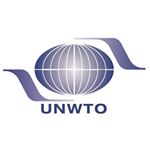
International Year for Sustainable Tourism for Development 2017 garners support from the sector
Madrid, Spain, 5 December 2016, only few weeks ahead of the official launch of the International Year of Sustainable Tourism for Development 2017, set to take place on the 18 of January 2017 in Madrid, Spain, representatives from various tourism industries and beyond have joined UNWTO to support the celebrations of this important event.
The United Nations 70th General Assembly has designated 2017 as the International Year of Sustainable Tourism for Development. In the context of the universal 2030 Agenda for Sustainable Development and the Sustainable Development Goals (SDGs), the International Year aims to support a change in policies, business practices and consumer behavior towards a more sustainable tourism sector that contributes to the SDGs.
The Ministry of Tourism of Mexico, the German National Tourism Board, All Nippon Airways, the Global Tourism Economy Research Centre, Macao, China, the Balearic Islands Tourism Agency, Minube, Amadeus, the European Geoparks Network, The Travel Corporation and DDB are among the first sponsors to join UNWTO to support the programme of activities of the Year. The City of Zurich, the University of Crete, CABI and Green Key have also joined as “Friends” of the Year.
“The International Year of Sustainable Tourism for Development, to be launched in January in Madrid, is a unique opportunity to raise awareness on the contribution of sustainable tourism to development among public and private sector decision-makers and the general public, while mobilizing all stakeholders to work together in making tourism a catalyst for positive change,” said UNWTO Secretary-General Taleb Rifai.
The year will promote tourism’s role in the following five key areas:
(1) Inclusive and sustainable economic growth
(2) Social inclusiveness, employment and poverty reduction
(3) Resource efficiency, environmental protection and climate change
(4) Cultural values, diversity and heritage
(5) Mutual understanding, peace and security.
A full programme of activities will be unveiled on 18 January on the occasion of the Opening of the International Year.
More information:
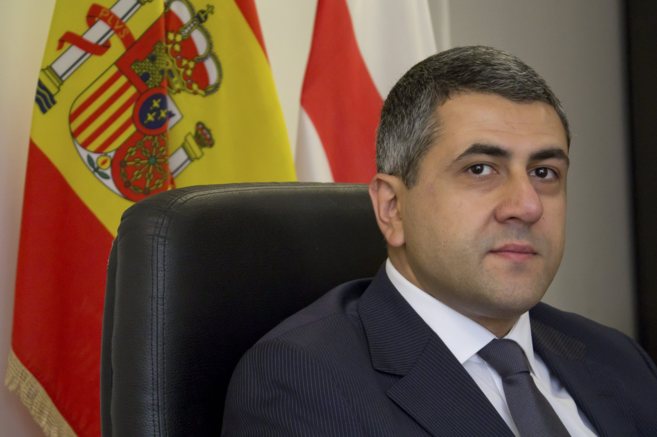
Georgia’s Ambassador: The new future leader of UNWTO?
Competing for this move with the outspoken Hon Walter Mzembi, Minister of Tourism and Hospitality Zimbabwe, the country of Georgia on November 15 has named Zurab Pololikashvili, ambassador to Spain and permanent representative to the UN World Tourism Organization (UNWTO), for the position of the organization’s secretary general.
Mr. Pololikashvili speaks English, Spanish, French, Russian, and Japanese
In 1998 he graduated from the Technical University of Georgia with an degree in International banking.
In 1993 he studies French at the International Language School in Paris.
As of April 15, 2012 Mr. Pololikashvil is Ambassador Extraordinary and Plenipotentiary of Georgia in the Kingdom of Spain
Prior:
March 2011-March 2012 General Manager of FC Dinamo de Tbilisi
July 2010 – February 2011 Vice President of Grupo TBC
August 2009 – June 2010 Minister of Economic Development of Georgia
June 2006 – August 2009 Ambassador Extraordinary and Plenipotentiary of Georgia in the Kingdom of Spain
July 2005 – January 2006 Deputy Foreign Minister of Georgia
February 2005 – July 2005 Head of Central branch of TBC Bank
February 2001 – February 2005 Director of the Mtatsminda branch of TBC Bank
March 1999 – February 2001 Assistant Credit Manager TBC Bank
March 1998 March 1998 Accounting Correspondence Manager, TBC Bank
November 1997 – December 1998 manager of international operations, TBC Bank
Courses completed
· 2008-2009 – Business Executive Course, Instituto de Empresa de Madrid
· January 2004 – JICA International Economics Program (Tokyo, Japan)
· October 2001 – KPMG Barents Group. Seminar of Management of branches (Varna, Bulgaria)
· December 200 – Banking Financial Academy. The New Accounting Standards (Tbilisi, Georgia)
· November 2000 – Financial Academy Banking. Marketing Banking (Tbilisi, Georgia)
· March 1999 – Credit Commercial de France (CCF, Paris) Internship in Commercial Management
· April 1999 – Program for small and medium-sized enterprises (Yerevan, Armenia)
· January 1998 – Banking Financial Academy, Business English Course
· April 1998 – Credit Commercial de France (CCF, Paris) Documentary Operations Seminar (Tbilisi, Georgia)
· March 1998 – USAID in Cooperation with the Barents Group LLC. Seminar on Documentary Operations (Tbilisi, Georgia)
· April 1997 – USAID in Cooperation with KPMG Peat Marwick. Credit Analysis Seminar (Tbilisi,
Georgian Prime Minister Giorgi Kvirikashvili said on November 14 when nominating Pololikashvili that he has played a great role in promoting the country’s tourism potential and attracting foreign investments to this sector. He also noted that Pololikashvili’s background fully meets the eligibility criteria for assuming the UNWTO Secretary General’s duties.
Georgia, a country at the intersection of Europe and Asia, is a former Soviet republic that’s home to Caucasus Mountain villages and Black Sea beaches. It’s famous for Vardzia, a sprawling cave monastery dating to the 12th century, and the ancient wine-growing region Kakheti. The capital, Tbilisi, is known for the diverse architecture and mazelike, cobblestone streets of its old town.
Georgia is affiliated with the European Union and has shown its desire to become a tourism destination. New hotel developments in Tbilisi are witness to this move, but so far the country has not made a major impact in global travel and tourism. The tourism industry is in a developing mode at this time.
In the meantime the Hon. Walter Mzembi from Zimbabwe had been traveling the globe, attended many important UNWTO meetings, trade shows, and events, bringing creative ideas of a fresh global approach to the world in how to lead UNWTO in a different world. His experience as one of the longest serving tourism ministers in the world is hard to find and may be a big challenge for the Georgian candidate.
The term of office of incumbent Secretary General of UNWTO, Taleb Rifai, a Jordanian national, is coming to an end next year. The new Secretary General for 2018-2021 will be selected in May 2017 by the organization’s executive board comprised of 33 nations, according to the Georgian government’s office.
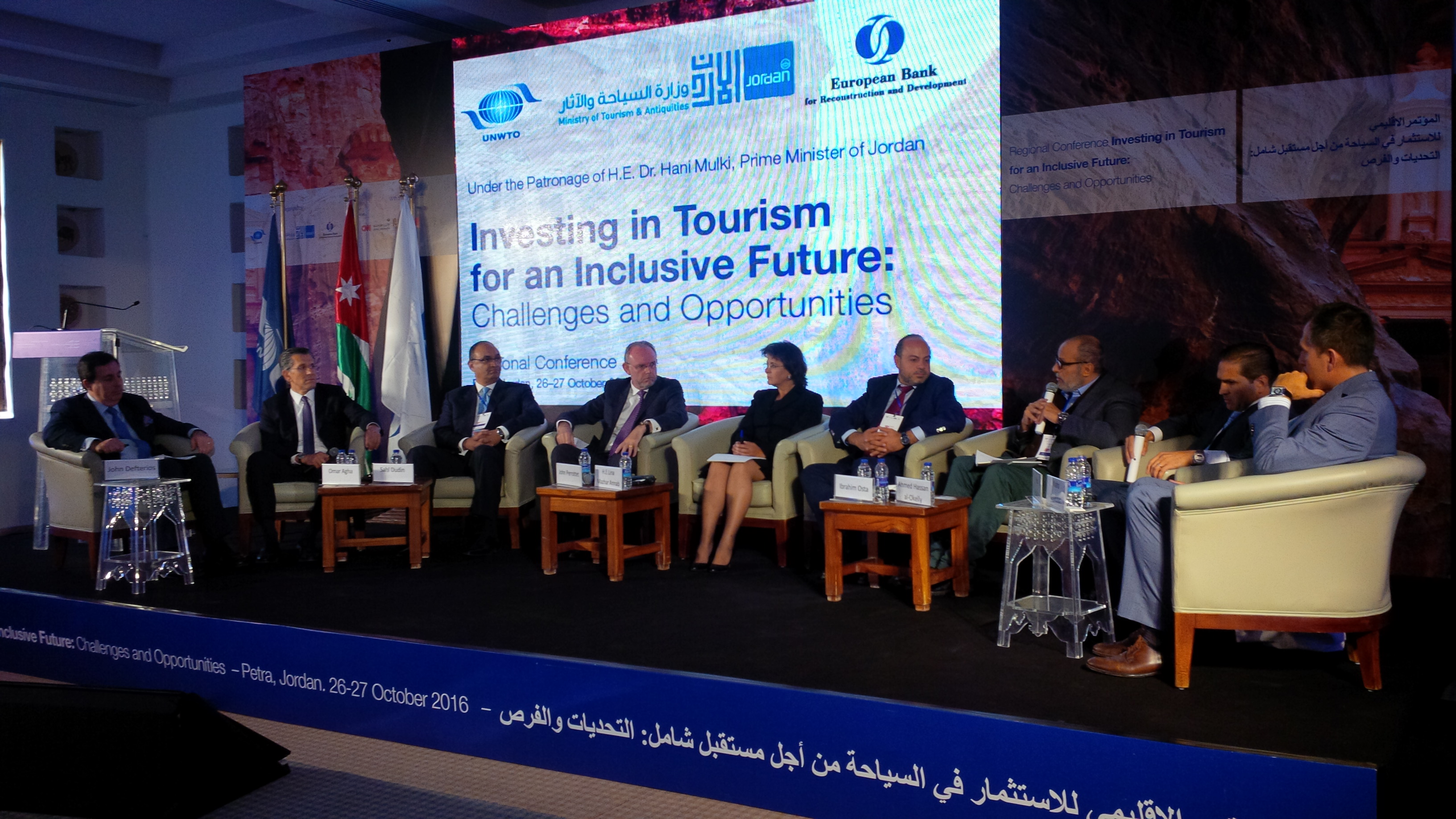
Tourism Middle East: The Final Petra Declaration is now out
On October 26 and 27 tourism leaders from the Middle east participated in the jointly organized by the European Bank for Reconstruction and Development (EBRD), the Ministry of Tourism and Antiquities of Jordan and the World Tourism Organization (UNWTO), brought together tourism stakeholders from the public, private, banking, investment and development sectors, who are working in the Southern and Eastern Mediterranean (SEMED) region and are driving tourism development on a national, regional or global level to identify the challenges and best-practices that are specific to the region, with a view to drafting comprehensive recommendations for tourism development in the future encompassing the following three priority areas:
- Provide access to training and employment opportunities;
- Enhance resource and energy efficiency
- Strengthen local Micro, Small and Medium Enterprises
eTN Publisher was one of the panelist contributing to this important event.
The Final declaration known as the Petra Declaration was now released by uNWTO it reads:
Declaration on Investing in Tourism for an Inclusive Future
PETRA DECLARATION
We, the representatives of the tourism administrations, international and regional organizations, investment and banking sector, and the private sector gathered at the Regional Conference on Investing in Tourism for an Inclusive Future: Challenges and Opportunities, organized by the European Bank for Reconstruction and Development (EBRD), the Ministry of Tourism and Antiquities of the Kingdom of Jordan, and the World Tourism Organization (UNWTO) in Petra, Jordan, on 26–27 October 2016, Recalling
1. The United Nations Educational, Scientific and Cultural Organization (UNESCO) Convention concerning the Protection of the World Cultural and Natural Heritage, adopted on 16 November 1972, which considers that “parts of the cultural or natural heritage are of outstanding interest and therefore need to be preserved as part of the world heritage of mankind as a whole”.
2. The UNWTO Global Code of Ethics for Tourism, approved by the UNWTO General Assembly in 1999 and endorsed by the United Nations (UN) General Assembly in 2001, which comprises a comprehensive set of principles as guideline for responsible and sustainable tourism, including the provision of fair and quality training and employment opportunities in tourism.
3. The UN General Assembly resolution A/RES/64/14 of 22 December 2009 that expresses the support for the establishment of the UN Alliance of Civilizations as a platform for intercultural dialogue, understanding and cooperation.
4. The UN General Assembly resolution A/RES/66/288 of 27 July 2012 that endorses the outcome document of the UN Conference on Sustainable Development, The Future We Want which emphasizes that “well-designed and managed tourism can make a significant contribution to the three dimensions of sustainable development, has close linkages to other sectors, and can create decent jobs and generate trade opportunities”;
5. The UN General Assembly resolution A/RES/69/233 of 19 December 2014 on the Promotion of sustainable tourism, including ecotourism, for poverty eradication and environment protection which recognizes that “sustainable tourism, including ecotourism, represents an important driver of sustainable economic growth and decent job creation, that it can have a positive impact on income generation and education, and thus on the fight against poverty and hunger, and that it can contribute directly to achieving the internationally agreed development goals”;
6. The UN General Assembly resolution A/RES/70/1 of 25 September 2015 on Transforming our world: the 2030 Agenda for Sustainable Development, which adopts the 17 Sustainable Development Goals (SDGs), of which three specifically mention tourism.
7. The UN General Assembly resolution A/RES/70/193of 22 December 2015, which proclaimed 2017 the International Year of Sustainable Tourism for Development and encourages the UN 2 system and all other actors to support sustainable tourism at all levels, including international cooperation, as an efficient instrument to contribute to sustainable development, especially addressing global challenges such as poverty eradication, environment protection, and economic empowerment of women and youth;
8. The T20 Tourism Ministers’ Declaration of 30 September 2015 on Tourism, SMEs and Employment – Policies to Stimulate Job Creation and Inclusiveness, which recognizes that “the competitiveness of tourism depends on the quality of the service and thus the sector requires increased investment in human resources development, including education and vocational training, as well as improvement in working conditions and social dialogue”;
9. The 10-Year Framework of Programmes on Sustainable Consumption and Production Patterns (10YFP), notably the 10YFP Sustainable Tourism Programme that encourages the shift towards green growth and sustainable development.
Considering that
10. Tourism is one of the fastest growing socio-economic sectors: in 2014 tourism was the third world export earning category — after fuels and chemicals — accounting currently for an estimated 10% of world GDP, 1 in 11 jobs, 7% of global trade and 30% of trade in services;
11. Given its complexity of multiple horizontal links with other economic sectors, tourism can generate development opportunities along the entire tourism value chain, diversifying the economy and stimulating entrepreneurship, thus accelerating structural transformation and providing opportunities to stimulate other productive sectors in goods and services related to tourism demand;
12. Tourism is featured in three of the 17 SDGs, namely Goal 8, 12 and 14 on inclusive and sustainable economic growth, sustainable consumption and production, and the sustainable use of oceans and marine resources, respectively, and yet has the potential to contribute to sustainable development in general in view of its cross-cutting nature;
13. Tourism is also well-positioned to fight poverty through creation of entrepreneurship opportunities as well as full and productive employment and decent work for all, particularly youth, women, indigenous, local and disadvantaged communities;
14. Resource efficiency in tourism operations and adoption of sustainable consumption and production patterns will enhance the sector’s competitiveness while contributing to address climate change imperatives in line with SDG 12 and SDG 13 respectively.
15. Tourism development, when efficiently planned and well managed, has the potential to contribute to environmental conservation efforts and poverty reduction by focusing on biodiversity assets;
16. As tourism is based on human interaction between visitors and host communities, it can efficiently contribute to the promotion of cultural links to improve and promote intercultural and international understanding, mutual respect and tolerance between nations and cultures, as well as between developed and developing countries and regions by enhancing cooperation at all levels and thus contribute to a culture of peace;
17. Despite growing recognition of tourism as an instrument for development, the sector often lacks firm integration in national development plans and is considerably underrepresented in international aid flows.
18. There is a growing demand from tourism organizations and stakeholders for a more systematic application of monitoring, data collection and detection of early warning signals to support evidence-based decision making processes and to underpin tourism’s catalytic capabilities in contributing to sustainable and resilient development.
Call upon
19. The private sector, investors, financial institutions, governments, academia and civil society to ensure that tourism development is based on responsible and sustainable planning, evidencebased decision making, and the involvement of all stakeholders, including the host communities and disadvantaged groups of society;
20. Governments, in partnership with the private sector, investors and financial institutions to provide access to fair and quality training and employment opportunities in order to address the inclusion gaps concerning youth and women, and to reduce local and regional employment and skills disparities;
21. Governments to incentivize entrepreneurship in relevant economic sectors related to the tourism value chain and to generate backward and forward linkages, as well as a regulatory framework, in order to fully engage local Micro, Small and Medium Enterprises (MSMEs) in the complex tourism value chain;
22. Governments, the private sector and all other relevant stakeholders, to promote innovation in tourism products, business models, and management, to embrace what is referred to as “sharing economy”, “collaborative economy” or “on-demand suppliers” and push forward the transformation and upgrading of the tourism sector in order to improve its quality and vitality;
23. Governments, in partnership with the private sector, to introduce improved national skills standards that reflect the requirements of private sector employers in the regions.
24. Governments, the private sector and all other relevant stakeholders to enhance local sourcing of agricultural, fisheries and forestry products to offer a genuine food experience to tourists, and to promote typical food products and handicrafts as assets of the destination.
25. Governments, the private sector and all other relevant stakeholders to promote diversification of local destinations, assets and types of tourism.
26. Governments to integrate and prioritize sustainable consumption and production in national planning and policy making, including tourism, to accelerate the shift towards more sustainable consumption and production patterns;
27. Governments to take a holistic approach and promote regional integration by developing cross-border tourism products and initiatives that can present beneficial opportunities for regions as a whole in the international market, while serving individual destinations’ economies, environments, and social factors;
28. Governments, the private sector and all other relevant stakeholders, to support sustainable tourism development and foster investment in infrastructure and technology that helps to improve resource efficiency and decouple economic growth from resource use and environmental degradation;
29. The private sector to act in line with the principles of the Global Code of Ethics for Tourism and advance Corporate Social Responsibility (CSR) initiatives;
30. Governments, the private sector and education institution to promote the UNWTO TedQual Certification Programme—Themis Foundation, which defines international quality criteria and standards to ensure the quality improvements in hospitality and tourism education programmes in compliance with the principles and practices of the UNWTO Global Code of Ethics for Tourism”
31. Governments, the private sector, investors and financial institutions to step up efforts in building an inclusive, sustainable and resilient tourism sector
32. Governments, the private sector and academia to establish data collection tools to capture and measure the social impact of MSMEs on local economies.
33. The global donor community, investors and financial institutions to recognise the potential of tourism to contribute to sustainable and inclusive growth and to increase investment for the sustainable development of tourism.
34. The UN System, and UNWTO in particular, to intensify efforts in advocating for tourism as a tool for development, and to trigger changes in policies, business practices and consumer behaviour on the occasion of the International Year of Sustainable Tourism for Development, 2017.
35. Governments to promote the message of peace and understanding as a prerequisite for sustainable development through tourism, fostering cross-cultural exchange and harmony between peoples and civilizations; and to support efforts to enhance safety and security and respect for human rights.
36. All tourism stakeholders to advance efforts in enabling and on-boarding hyperlocal technologies to enhance the travel experience.
37. All tourism stakeholders to recognize the role of tourism in contributing to greater understanding and respect among civilizations, cultures and religions, in accordance with the principles of the UN Alliance of Civilizations.
38. All tourism stakeholders to recognize the need for respecting, protecting and conserving cultural and natural heritage—as well as ensuring its transmission to future generations—in line with the UNESCO Convention concerning the Protection of the World Cultural and Natural Heritage and the Sustainable Development Goals.
Pledge to
39. Use and promote tourism as a tool for contributing to the achievement of the 2030 Agenda for Sustainable Development;
40. Contribute to building an inclusive and sustainable tourism sector that is based on human rights, social and economic justice and equality;
41. Enhance and actively engage in the dialogue between the private sector, governments and educational providers in improving national skills standards and training provision in the tourism sector;
42. Foster public-private partnerships and increase investment in tourism, particularly related to infrastructure, product and human resource development, financing, research and technology;
43. Create opportunities for high-quality on-the-job training to foster school-to-work transition for young people entering the tourism and hospitality sectors through partnerships with local vocational schools, colleges and training providers;
44. Strengthen vocational and technical level training as well as innovation and research in higher education;
45. Create and implement quality training and career opportunities for all, including youth, women, indigenous and local populations, and disadvantaged groups, that contribute to an inclusive and sustainable growth of local communities;
46. Ensure equal pay for equal work and deliver jobs that are aligned with the principles of the International Labour Organization’s Decent Work Agenda;
47. Enhance access to financing for MSMEs in tourism to enable their increased participation in local and global value chains;
48. Undertake all efforts in continuously improving the sustainability of the tourism sector and ensure its resource efficiency at all levels;
49. Strengthen efforts to generate sufficient funding and investment in tourism, including to support competitiveness of MSMEs; Extend our sincere gratitude to our host, the Government of Jordan, for its warm hospitality and amiable support for the organization of the Regional Conference on Investing in Tourism for an Inclusive Future, as well as its significant contribution to the advancement of the sustainable tourism agenda as a driver for change and an inclusive future.
Petra, 27 October 2016
Final Petra Declaration (in English)
Final Petra Declaration (in Arabic)
Conference’s booklet (including provisional programme, foreword and speakers’ bio notes in English)
Conference’s booklet (including provisional programme in Arabic)
http://https://youtu.be/1mErCrPC7Oc
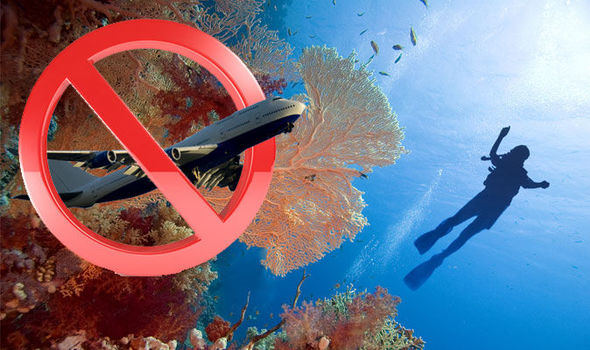
WTTC and UNWTO call on UK to lift flight ban to Sharm el Sheikh
In a letter to Prime Minister Theresa May, David Scowsill, President & CEO, WTTC, and Taleb Rifai, Secretary-General, UNWTO, stressed the importance of resuming operations to the Egyptian coastal resort as the current travel advisory is having devastating effects on the country’s economy and social stability.
The ban has been in place since a Metrojet airline flying from Sharm el Sheikh to St Petersburg crashed in the Sinai Desert in October 2015.
They said: “Travel & Tourism is vital to Egypt’s economy and social peace, contributing 11% of the country’s GDP and 2.6 million in jobs in 2015. The reduction of visitors has created huge employment losses. The country’s biggest concern is how the lack of employment opportunities, especially for young men and women, has instilled a desperate disposition and thus vulnerability to radicalisation or to fleeing on a refugee boat.”
Egyptian authorities have taken significant measures to step up the level of security not only in the airport but in the surrounding area as well. These improvements now meet the safety standards as indicated by the UK Department for Transport. All other countries, including Germany and Russia, have allowed their airlines to start flying to Sharm el Sheikh again.
They concluded: “It is devastating to see the impact the current UK travel advisory has on Egypt and on the young workforce in particular. We call on the UK government to review the advisory and allow commercial aircraft to fly to Sharm el Sheikh and thereby help restore the country’s Travel & Tourism sector’s GDP and employment provision.”

Climate Change is still Existential – US election doesn’t change science
The president of the International Coalition of Tourism Partners (ICTP), Professor Geoffrey Lipman is alarmed. In his blog addressed to ICTP members he published his concern about the President Elect of the United States of America, Donald J Trump. Professor Lipman is viewed as a senior authority in the global travel and tourism industry.
Previously he was the first CEO of the World Travel and Tourism Council (WTTC), and assistant secretary general of the United Nations World Tourism Organization (UNWTO). He is now the president of ICTP, a Hawaii, Brussels, Seychelles and Bali based membership organizations with tourism board and stakeholders in 114 countries.
The ICTP president has this to say:
“They say that a week is a long time in politics. It’s been just over a week since Donald J. Trump won the most powerful job in the world.
This election gave the most powerful job in the world to a man who denies climate change (as a Chinese hoax), says he will rip up the Paris Agreement, not put any US money into the Global Climate Fund, emasculate at best the EPA (Environment Protection Agency) and will take the shackles off the US (and hence global) fossil fuel sector.
I have no rights to protest the overall policy line of the President – elect of the United States, but as a part of humanity, I have a duty to oppose his disastrous climate positions.
We need the Paris Accords – a bare minimum of global climate leadership towards a low carbon economy. We need smart decarbonization regulation. We need a sharp shift towards renewables and away from fossil fuel. We need market based carbon pricing and new energy incentives. We need a 2050 “No Carbon Aviation Moon-shot”.
As I wrote in my last blog “this is just the start of a 3-decade carbon detox that will require a new dedication from every stakeholder, a new ability to think outside the box and to embrace new ways of doing business.”
Now, even more than before, with an existential climate change believer replaced by a denier in the White House, we must intensify the pro Paris mindset and find ways to preserve and strengthen the Accords.
A week ago we saw SUN, the Strong Universal Network, simply as a means to help travel destinations and their stakeholders keep a focus on climate resilience and move to a green growth transformation path. Now it’s part of the Paris Accords defense system.
Maurice Strong – in whose memory SUN is fashioned and who passed away a year ago would approve of the additional emphasis – he spent his life pushing for long term action on Sustainable Development and fighting humbug. In his latter days, he targeted climate change as the biggest threat to humanity and an existential challenge.
Every week the threat gets larger.
This week I’m addressing the Asia Pacific Eco-Tourism Summit in Tasmania and it’s a message I shall be delivering. Geoffrey H. Lipman, President ICTP and co-founder SUN.”
ICTP is a global membership organization of travel and tourism stakeholders and destinations with a common goal of Green Growth + Quality = Business. The International Coalition is based in Hawaii, Brussels, Seychelles and Bali with members in 114 countries.
More information http://www.ictp.travel

Zimbabwe Minister of Tourism sends letter of condolence to people of Haiti
Zimbabwe Minister of Tourism and candidate for the next Secretary General post of the UNWTO send a letter of condolence to Minister of Tourism and the people of Haiti.
Your Excellency and Chairperson,
I write, on behalf of the UNWTO Commission for Africa (CAF)which I have the honor to Chair, and wish to extend to you our collective heartfelt sympathy and most sincere condolences on the tragic loss of life and terrible injuries inflicted upon the great people of Haiti.
This follows the devastating hurricane Matthew that passed through Tiburon peninsula – encompassing Haiti’s entire southern coast, ravaging the third-largest town of Les Cayes and Sous-Roches district. I understand that at least 900 people are believed to have died. Tens of thousands of homes have been destroyed and over a million people are in need aid.
No words can bring adequate comfort to those who have lost loved ones or whose homes and livelihoods have been decimated by this disaster, but please know that you are all in our thoughts and prayers at this most challenging and difficult time. You will recall, Hon Minister, during the 60th UNWTO Commission for the Americas held in Havana, Cuba on 3rd and 4th May 2016, I highlighted, on behalf of Africa, the need to expand the definition of insecurity to include natural disasters of different kinds prevalent in different regions, which often claim more lives than conventional threats experienced globally such as terrorism, and in this regard, the need for us to also adopt holistic mitigation strategies for susceptible regions which are usually prone to the vagaries of unpredictable weather phenomenon. At the time it was Ecuador in the news, now Haiti. I spoke at the time on relief and philanthropic tourism emphasizing then that one of the ways to help disaster stricken destinations is to continue visiting them.
This is the reason I have put as part of my transformation agenda for the UNWTO (www.waltermzembi.org), the issue of climate change as an integral critical policy aspect as it impacts on human lives, livelihoods and destination competitiveness. I am further aware of the need, as part of my future plans for global tourism to explore the efficacy of establishing pre and post-disaster philanthropic support mechanisms that harness various funding options towards countries stricken by disasters.
In the hope of meeting you again in the near future and of continuing our discussion on the search for effective mitigation measures and solutions, I once again extend my deepest condolences and sympathies to all those affected by hurricane Mathew in the Republic of Haiti.
I remain committed subject to your invitation as discussed recently during the World Tourism Day Celebrations in Bangkok, Thailand to a visit to Haiti in my Latin America engagements coming soon. I underscored the same during my chance encounter with your Prime Minister when I met him in Venezuela during the recent Non-Aligned Summit.
Please accept, Hon Minister and Excellency, my deepest condolences to the People of Haiti, and wish those who have survived this tragedy a quick recovery. Zimbabwe and Africa joins you in your three days of national mourning.
Yours faithfully,
Hon Eng. Walter Mzembi, PhD
Minister of Tourism and the Hospitality Industry
Republic of Zimbabwe
Chairperson
UNWTO Commission for Africa
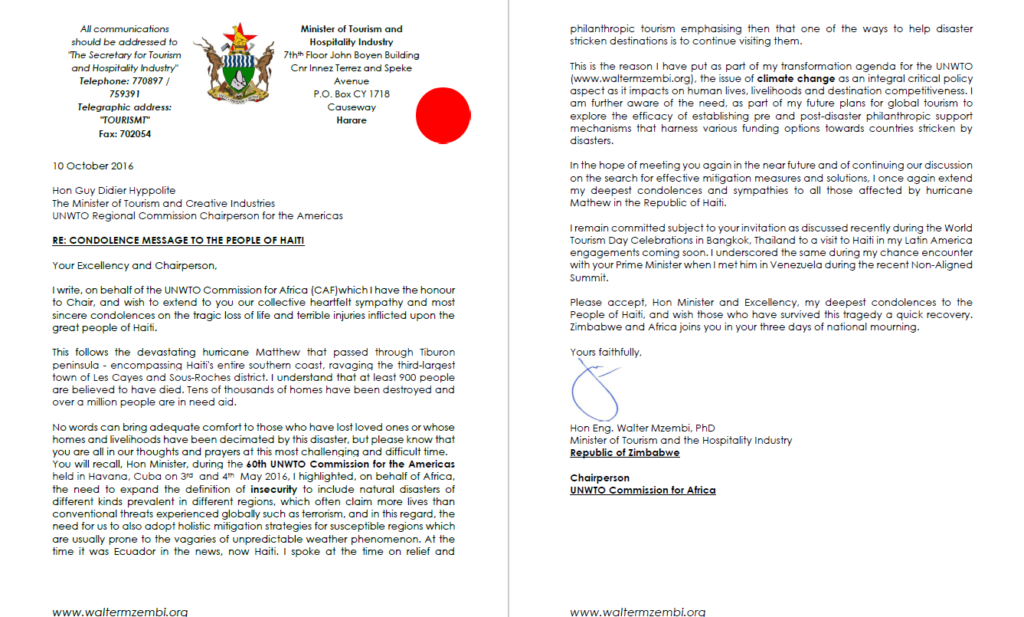
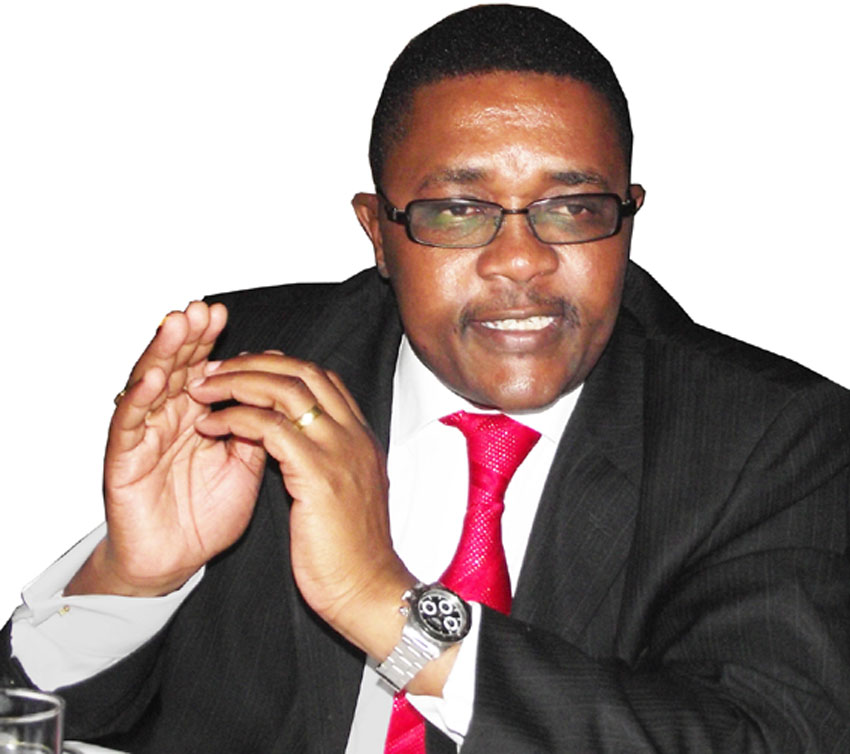
Dr. Walter Mzembi: A smile is the most universal expression of hospitality
World Tourism Day in Bangkok concluded yesterday. The last night was a night to remember for delegates to the UNWTO event.
One prominent delegate impressed with Thai Hospitality offered a toast during the Gala Night in Khon Kaen. He was Dr. Walter Mzembi who is running as a candidate to becoming the next UNWTO Secretary General.
Dr. Mzembi said:
-World Tourism Day was conceived 46 years ago, on the adoption of the WTO Statutes in 1970
– It was first celebrated in 1980
– I have participated and celebrated 8 WTDays, with various themes, culture, water, energy, Peace, etc
– I must confess this year’s theme is the most profound
-Tourism for all- Promoting Universal Accessibility
– Why because it celebrates love and humanity
-It is even more profound as it being celebrated through the most universal language
– A smile!
– Smiles are spoken more than any other language, Spanish, English, Arabic, Chinese, Indian, combined.
– A smile is the most universal expression of hospitality, without saying anything, or the spoken word, it exudes warmth and happiness!
– Don’t you think our generation has every reason to smile ?
– Yes we should smile for we are a very lucky people, lucky lot to be placed and raised at this moment in time, whose civilization and technological advancements has allowed this interaction , in peace and happiness
– Generations past were defined by conquest, each time different cultures interacted or met, they would establish supremacy first by fighting and eliminating each other
– At the Airport , several tens of cultures met and celebrated their diversity through song and dance, the smile leading the reception, bar language barriers, we understood that we were welcome through the smiles!
Keep it up Thailand and Hon Minister, my dear Sister once again Congratulations, on behalf of all International Delegates , we are taking very useful lessons with us to our various countries on the virtues of loving one another!
More Love !
I thank you!
God Bless You All!

World Tourism Day message from Minister Alain St.Ange of the Seychelles
As the world marks Tourism Day it is important for us in Seychelles to say “Happy Tourism Day” to each and every one, but to also say let us all rally to defend, protect and help consolidate this industry that remains the powerful vehicle to not only stimulate the economic growth of our countries, but that also remains the motor for social growth in the world at large. Today we celebrate a milestone for Seychelles. Our islands are noticed around the world, and for such accomplishment we need to thank our private sector trade, our hotels, our DMCs and our airlines for promoting Seychelles as a tourist destination.
Seychelles will soon welcome two new airlines, Qatar Airways and Turkish Airline which will bring more tourists to our paradise islands. Seychelles is now connected to the big wide world as never before and with its tourism industry remaining the pillar of its economy. We want to see Seychelles tourism bloom and to do that we will work with our National Airline, Air Seychelles along with all the other airlines partners.
We are today proud to say that we have protected what we have ben blessed with – the lush green natural landscape of our islands, our white sandy beach and our turquoise blue seas. We can be seen as good custodians of what we have and we have gone the extra mile and have now declared over 50% of the total land area of Seychelles as protected national parks. But that is just not enough because we know that our tourism industry would be on shaky ground if we did not put our culture at the centre of our tourism industry and by doing that placing our people at the very centre of our development, because without people we have no culture. This is why on this World Tourism Day, as we all celebrate the milestones achieved in our industry we need to say to ourselves that our people remain our greatest asset and we all need to embrace them in their diversity.
May Tourism Day 2016 be for the great continent of Africa a time of reflection on the protection and preservation of our rich natural heritage and this inclusive of our people in its diversity in political affiliation, colour of the skin, religious beliefs and sexual preferences. May Tourism Day 2016 also be for the World at large a time for reflection where the ambitions of one does not step on the rights of others needing tourism as a source of economic survival.
Alain St.Ange, Minister of Tourism and Culture, Republic of Seychelles

WTTC calls on the Travel & Tourism sector to be more accessible
BANGKOK, Thailand – David Scowsill, President & CEO, World Travel & Tourism Council (WTTC) has called for the Travel & Tourism sector to be more accessible, during a speech at World Tourism Day celebrations in Bangkok, Thailand.
Scowsill said: “Travel & Tourism needs to take accessibility requirements seriously. The imperative is not only moral, but it also makes good business sense.”
The global Sustainable Development Goals provide a roadmap for a more equitable and sustainable future. If Travel & Tourism is going to be truly inclusive in its growth, it must ensure that it is accessible to everyone.
Furthermore, nearly 15% of the world’s population is estimated to live with some form of disability. As populations get older, the number of people with special needs is going to increase.
“Many tourism businesses can be deterred from making themselves more accessible. Sometimes they have financial concerns about the investment necessary to alter or refit their facilities, and at other times they are concerned about offending people. That is why days such as the World Tourism Day are so important. We need to raise awareness of the opportunities of accessibility and the mechanisms by which it can be achieved,” stressed Scowsill.
Scowsill identified three priorities for the Travel & Tourism sector when it comes to accessibility:
1. Understand the market dynamics and opportunities when it comes to accessibility, and how they relate to your business so that you can prioritise actions accordingly.
1. Look at what the leading players are providing and learn from them. Often some simple adaptations or a mere awareness of the needs of people with a disability can make a big difference.
1. Partner with organisations which have experience of working in accessibility, to ensure that what you are providing is appropriate and communicated effectively.
. Scowsill further argued that catering for people with disabilities goes far beyond those travellers restricted to wheelchairs. It includes all forms of mobility restrictions, hearing or visual impairments, learning disabilities or mental health issues. It encompasses the needs of an ageing population around the world.
. WTTC also encourages accessibility in tourism through its Tourism for Tomorrow Awards. In 2015, Ilunion Hoteles won the People Category for its pioneering work in accessible design, and having a work force of people with disabilities in their hotels.
The 2017 Tourism for Tomorrow Awards are now open for entries and WTTC encourages companies that do work in accessibility to apply. Winners will be announced at WTTC Global Summit, which will be held in Bangkok, Thailand, 26 – 27 April 2017.
eTN is a media partner for WTTC.
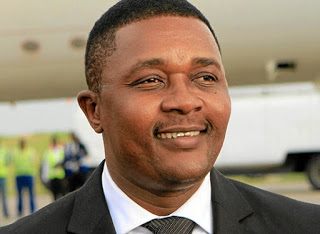
UNWTO candidate Dr. Mzembi issues statement for World Tourism Day
The outspoken candidate for the next UN World Tourism Organization (UNWTO) Secretary General, Doctor Walter Mzembi, the Minister of Tourism and Hospitality for Zimbabwe, today issued a statement for World Tourism Day.
Celebrations for World Tourism Day are held around the world, with Bangkok as this year’s official location.
Dr. Walter Mzembi said from Bangkok:
I issue this solidarity statement from Bangkok, Thailand, where we are gathered to celebrate World Tourism Day, 2016, under the theme: “Tourism for All – Promoting Universal Accessibility.” The entire government of Thailand has been mobilized around this event led by the Prime Minister, HE General Prayut Chan-o-cha, who shall deliver the keynote address.
The program also captures the involvement and various acts by the Deputy Prime Minister, our host Minister of Tourism herself, HE Mrs. Kobkarn Wattanavrangkul, and a technical visit to Khon Kaen Province, where we shall be treated to a very rich itinerary including the “performance of wheelchair men,” in line with the global theme.
What is very clear, as was the case with our hosting of the 20th session UNWTO General Assembly in August 2013, is that this is a national event taken very seriously by the entire nation and an absolute opportunity to leverage this global endorsement to bring to the fore, the country’s best foot, and its brand pay off line, “The Land of Smiles.” Hopefully, while not forgotten, this should put behind them the horrid memories of multiple assaults on the sector ‘s tourist hotspots of Hua Hin, Surat Thani, and Patong on August 12 of this year. In my condolences to the Tourism Minister, I did promise that in solidarity with the people of Thailand and the incessant attack on the sector, I was going to join the Secretary General, Dr. Taleb Rifai, and other dignitaries who include the World Travel and Tourism Council President and CEO, David Scowsill; Mario Hardy, PATA CEO, and other colleagues and ministers invited to the celebrations.
Notwithstanding the clear intentions to scare us away from this beautiful country, we are out here to reinforce the message that no amount of terror will halt the sheer force and energy of human civilization unleashed by this great revolution of our contemporary times – travel. We are here to consolidate the gains of travel, which only 65 years ago had 25 million travelers, and has since closed 2015 with 1.2 billion tourists! Today, the sector employs 288 million people, and accounts for 6% of the world’s exports at $1.5 trillion, translating to a cumulative impact of earnings of $8 trillion – 10% of the Global GDP. The sector, in line with SDGs 8, 12, and 14, shall record a minimum of 1.8 billion by 2030, which projections are now being tested and certainly need to be revised if one takes into consideration news from China that it will authorize an unbelievable 600 million outbound Chinese tourists by year 2020, from the current 128 million!
So, the best way to help conflict stricken destinations, terror targets, and now as we redefine insecurity to include natural disasters, is to visit and continue visiting those destinations. Suspend all protocols, and disregard inordinate travel advisories that seek to multiply misfortune and suffering on unfortunate destinations by endorsing them through sustained visits. The 1.2 billion tourists are potential peace ambassadors and opportunities for the world’s terror-stricken targets and the poor.
Typically, the subject of accessible tourism is key in our contemporary times. It is not only about providing tourism services to people with disabilities, but innovatively creating universally-designed, barrier-free environments that support people who may have temporary and permanent physical challenges, young children, the ever increasing elderly population, as well as creating safer environments for employees who work in the sector.
Applying inclusion principles, in my view, demands that the facilities and products which we have established or are currently under establishment, become accessible by all. This way, it helps destinations to expand their horizons in terms of inclusivity, competitiveness, and ideally lead to greater customer satisfaction, loyalty, and expansion of the business.
At the strategic and operational level, accessible tourism implies that the tourism industry needs to redesign itself to develop flexible, multi-use accessible spaces and enhance its productivity and operational management, all of which should directly assist humanity to enjoy tourism products with no hindrance, exclusion, or impediment to access.
Our varied geographical, cultural, and social disparities should not be excuses to perpetuate exclusion of others. It is imperative as we celebrate the international World Tourism Day today, to once again renew our covenant, in which with one accord we proclaim tourism as a product for all. This cannot happen without support from all of us and indeed, stakeholder collaboration to provide easily-accessible tourism products becomes a game changer.
I call upon designing and re-designing of both new and old infrastructures to enable people with unique access requirements, including mobility, vision, hearing, and cognitive dimensions dignified equity, sharing, and access.
My clarion call is that accessible tourism is everyone’s responsibility. It is indeed a collaborative process that requires full understanding of heterogeneity of access requirements informed by different types of embodiments, where the creation of an enabling environment is understood through universal design that answers to the physical and intuitive needs of different people.
Therefore, it is super critical that tourism operators in Zimbabwe, Africa, and globally, understand the visitors’ experiences on enabling or disenabling tourism environments so that those experiences help all of us to put in place needs-based infrastructure and super structures.
I mention this on the back of the ever-growing need to adapt tourism products to be more user-friendly to our traveling publics, who in some cases encounter accessibility difficulties in the travel process resulting in dissatisfaction.
Yet, when there is an enabling tourism environment, visitors’ experiences become memorable, joyous, dignified, and equitable. It is this missing link that we should look at and address as a new growth opportunity in our destinations. Clearly, simple design solutions can make a huge difference and open our destinations to accessibility required by markets as well as improving operational efficiency of the tourism business.
There is a realization that building of hotels, restaurants, theatres, public spaces, public transport, streets, and squares often are insufficiently inaccessible to people enabled differently. Many inconveniences occur when some of our people want to use facilities. Thus, this calls for the application of minimum standards to cater for the physically challenged so that tourism value chains are not seen as discriminatory.
“Tourism for all – Promoting universal accessibility” is a call for global commitment to reposition the tourism industry less through talk shows, but more through instituting practical solutions to “quick-fix” action to close the gaps which make tourism products inaccessible. It is refreshing that the UNWTO is celebrating this day in 2016 on the back of 2017, the “International Year of Sustainable Tourism for Development.” This is a befitting theme, and part of our discussions and outcomes will significantly shape the destiny of delivering sustainable and inclusive tourism product value chains, and repositioning of global tourism for all.
As usual, because of our unique economic circumstances, there is always an attempt to domesticate international themes to answer our own challenges, and one such debate has been how pricing of tourism and hospitality services, especially in the wake of a bullish United States dollar, our anchor currency has denied the majority of our people access to these assets. It is a very valid argument for another day, and aligns itself to an international argument on the behavior of currencies actually now impacting the performance of the sector globally.
